Celebrating Imperial’s top new women-led startups
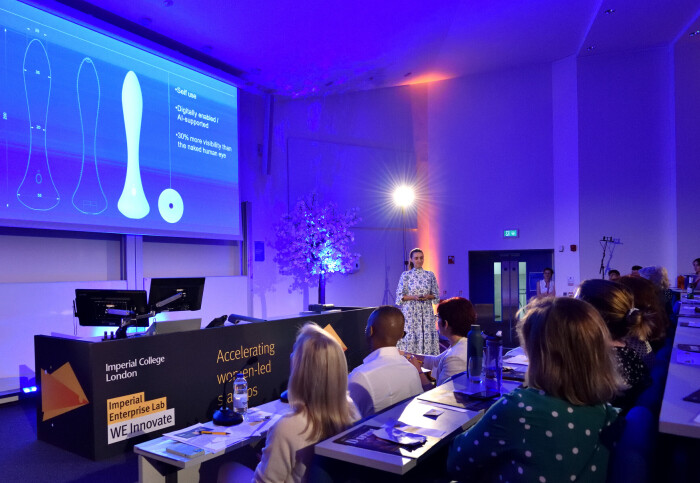
The five groundbreaking new businesses that will compete in the final of Imperial’s WE Innovate programme for women-led startups have been announced.
This year’s pioneering ventures range from wearable devices to help pregnant people track contractions to biodegradable packaging for life-saving temperature-sensitive medicine.
The WE Innovate programme, run by Imperial Enterprise Lab, is a targeted pre-accelerator which aims to support the next generation of women entrepreneurs and help them develop new businesses.
Now in its tenth year, WE Innovate remains committed to addressing the barriers that women entrepreneurs face when growing their businesses, such as limited access to finance, networks and business support. So far, the programme has supported more than 60 women-led startups, which have gone on to raise more than £37.5 million.
Each new programme starts in January, with up to 25 women-led teams invited to participate in a six-month programme of coaching, mentoring, and business skills masterclasses. This year’s five finalists will compete for a share of a £30,000 prize fund by pitching their ideas at the Grand Final to an audience of investors, business owners and students.
- You can attend the WE Innovate final at Imperial on Wednesday 19 June - tickets are free and available on a first-come-first-served basis. You can register to attend here.
After a successful first decade, WE Innovate is now opening its doors to new sponsors to develop plans to expand the programme to all corners of the UK and create a national WE Innovate network.
It is hoped that WE Innovate can have even more impact on supporting women-led startups by expanding beyond London to a further six regions across the UK.
You can find out more on how to join WE Innovate as a sponsor here: https://www.imperial.ac.uk/Stories/we-innovate-sponsorship/
The 2024 finalists are:
BIA
According to the BIA team, more than 40 per cent of pregnant people in labour struggle to recognise uterine contractions. BIA is a non-invasive and discreet wearable device that tracks contraction activity. Its flexible sensor activity enables strong signal acquisition for remote monitoring, enabling medical professionals to make evidence-based decisions about when intervention may be needed. The device would be available to rent with three packages offering different levels of support.
BIA is led by Vedika Lall, a professional design engineer and MSc student in Global Innovation Design.
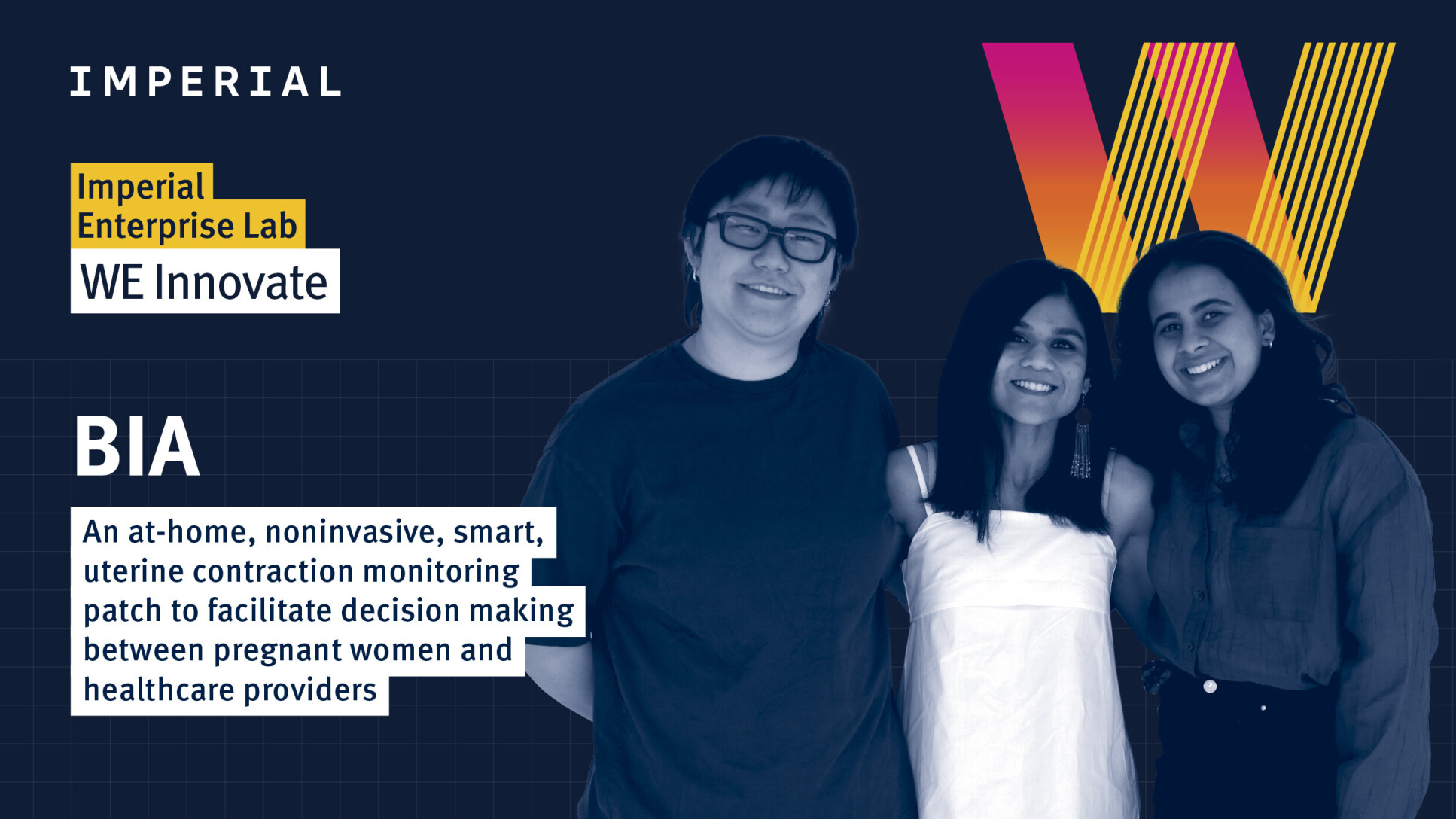
Hi-Fond
Hi-Fond aims to reduce the level of waste experienced in the fruit supply chain. The team is developing a new, edible preservative which replaces or strengthens the fruits’ natural coatings, helping to prevent moisture loss, while still allowing essential respiration to take place. Reducing the amount of fruit that never reaches consumers, because it has rotted during the supply chain, would increase the amount of fresh produce available to consumers and improve profitability for farmers and wholesalers, the team say.
Hi-Fond is led by Alvia Shadqah, who is an MSc student in Management at Imperial.
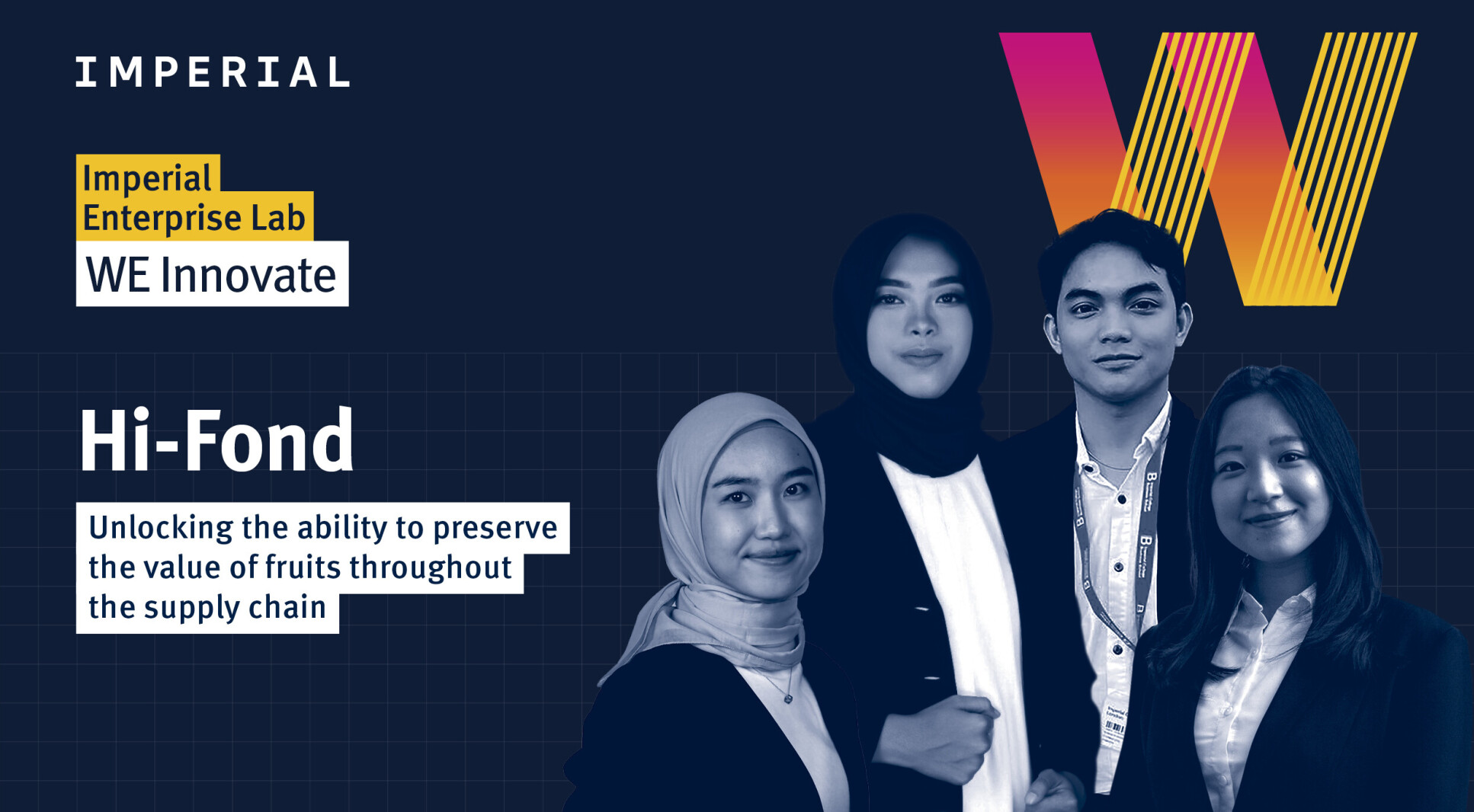
Pera
Bowel incontinence affects one in 10 people at some point in their life, according to the charity Crohn's & Colitis UK. Pera has developed a wearable device that could help make life easier for people with this condition by predicting bowel movements. The device is non-invasive, discreet and works by continuously monitoring physiological markers which are personalised through machine learning. A digital interface gives wearers up to 40 minutes’ notice of the need to take a bathroom break.
Pera is co-founded by Innovation Design Engineering students Maria Asif, Hanju Seo, Alexander Spencer and Sven Winkler von Stiernhielm.
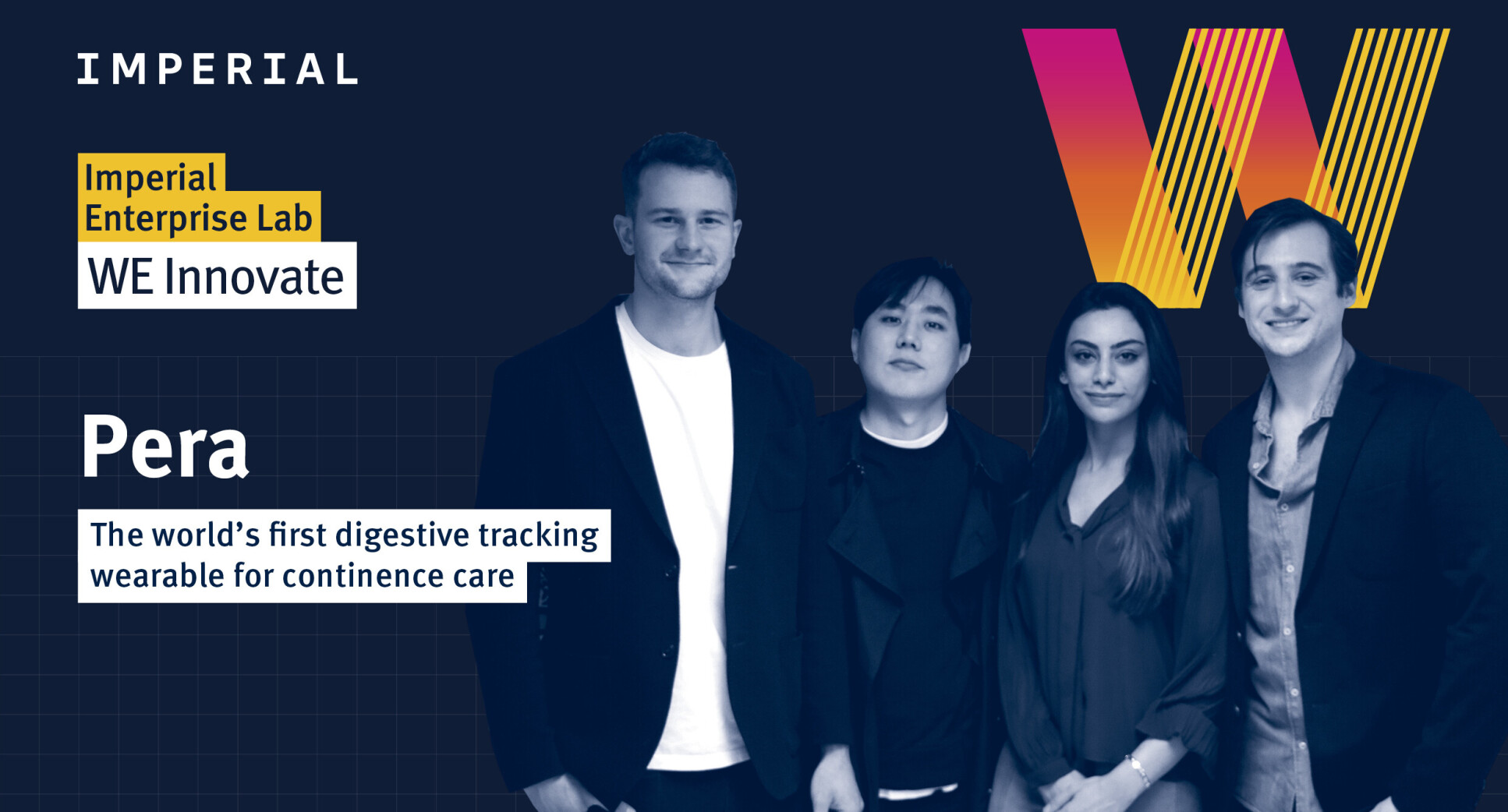
Sealeo
Reducing the high level of drug and vaccine spoilage is the key target for Sealeo. Safe and effective medicine delivery is often a challenge, particularly for remote areas across the less developed world that lack cold storage infrastructure. Sealeo is developing a novel, biodegradable, evaporative, cooling packaging solution that maintains a safe temperature range (2-8 degrees centigrade) for 2.6 times longer than existing products. The team believe their cost-effective packaging can transform life-saving drug and vaccine delivery in under-served areas.
Sealeo is led by co-founder Diana Epel, who is studying Innovation Design Engineering at Imperial.
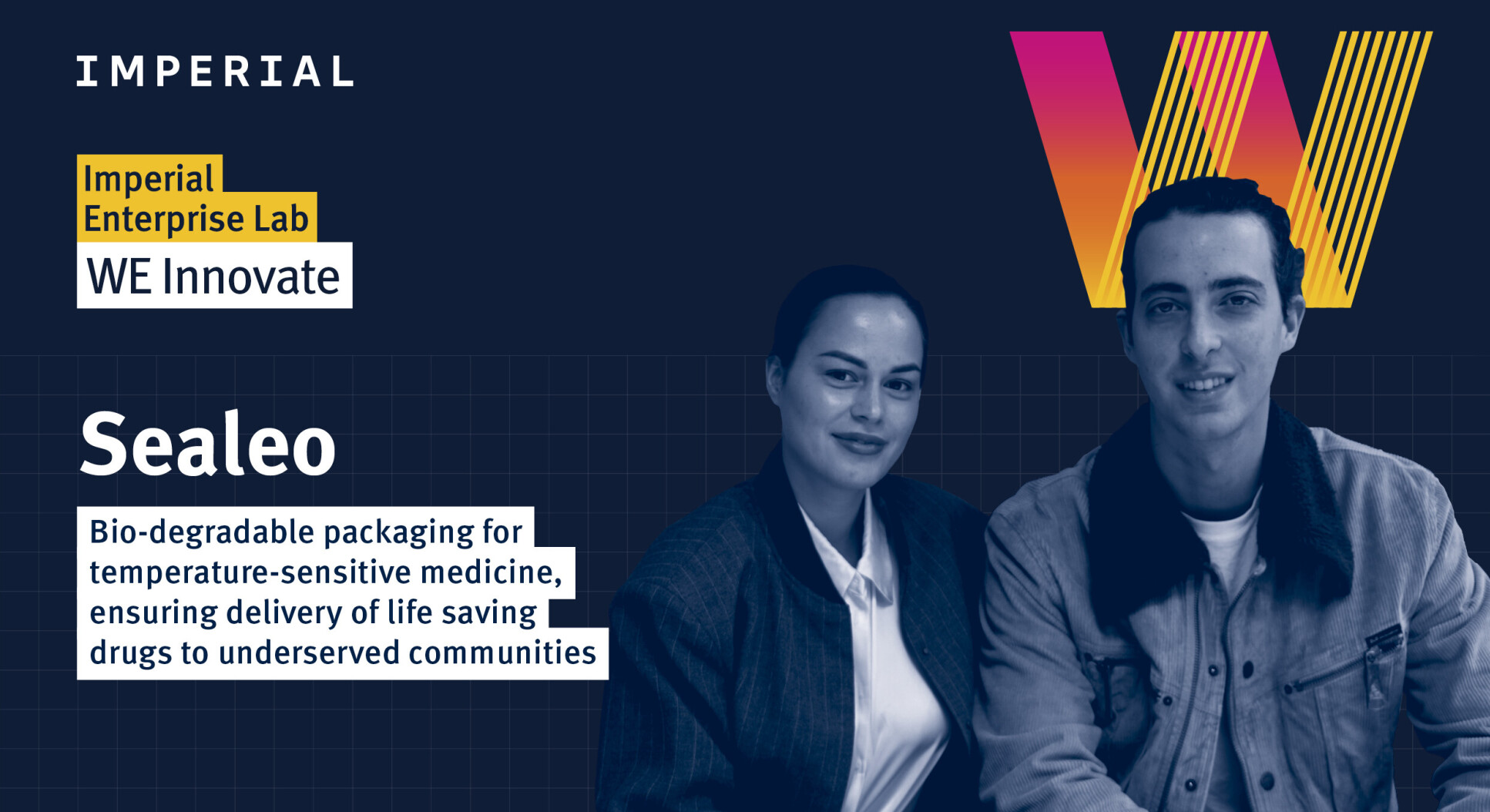
Sensyre
Sensyre is working to create a technological medical intervention that could transform treatment and recovery after injury for athletes. Injuries in elite sport are common and expensive for the industry, with a cost of roughly $16 billion per year, according to Sensyre. The team’s intervention aims to take a holistic mind-body approach to help optimise athletes’ confidence and performance, improve rehabilitation and extend their careers.
Sensyre is co-founded by Innovation Design Engineering student Sade Heino and Global Innovation Design student Samantha Clarke.
 --
--
To find out more about this year’s teams and their business ideas, visit the Imperial Enterprise Lab.
Article text (excluding photos or graphics) © Imperial College London.
Photos and graphics subject to third party copyright used with permission or © Imperial College London.
Reporter
Conrad Duncan
Communications Division
Corinne Farrell
Communications Division